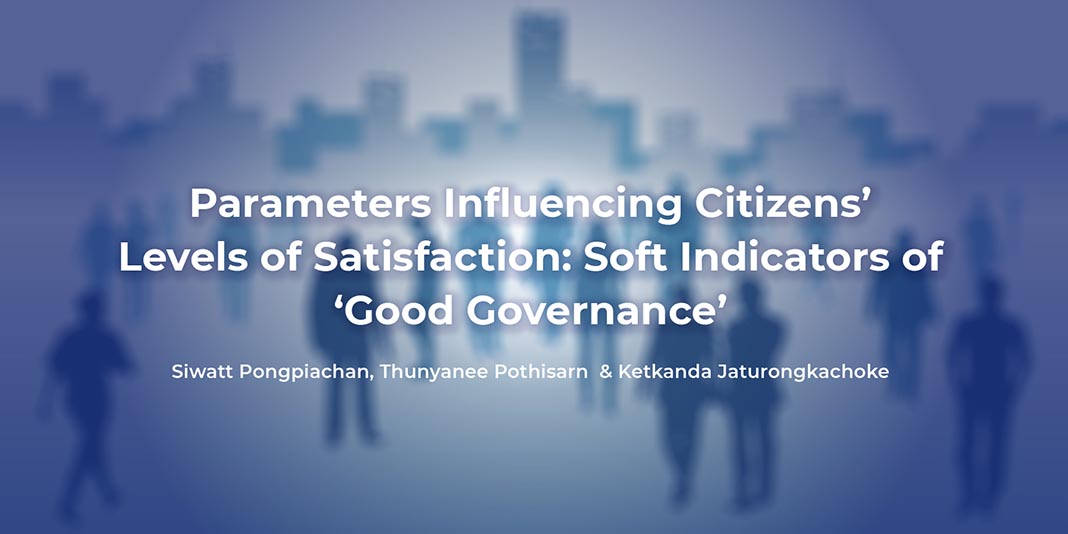Parameters Influencing Citizens’ Levels of Satisfaction: Soft Indicators of ‘Good Governance’
- Details
- SDGS - Research

Parameters Influencing Citizens’ Levels of Satisfaction: Soft Indicators of ‘Good Governance’
Professor Dr. Siwatt Pongpiachan (School of Social and Environmental Development, National Institute of Development Administration), Thunyanee Pothisarn & Ketkanda Jaturongkachoke
Abstract
Previous studies highlighted the importance of soft indicators (e.g., quantitative sociological survey) influencing citizen satisfaction towards municipal service quality. Citizen satisfaction assessments have raised concerns over numerous independent parameters such as gender, age, and education on satisfaction levels toward administrative performance.
It is also crucial to underline that the application of sociological survey for improving service quality is not well understo od by municipal officers or scholars. To obtain substantial combined multiple indicators of service quality, it seems rationale to reconnoitre numerous parameters of citizen satisfaction and quantitatively investigate impacts of independent variables (e.g. g., gender, age, education) on corresponding satisfaction levels by using some advanced statistical tools. In this sociological assessment, a targeted population was constructed of Bangkok Metropolitan administration (BMA) stakeholders ( n = 38,500), which ar e as follows:
- Bangkok residents in 50 districts under the governance of BMA
- Board committee, executive directors and general staff of 27 BMA offices
This multiple dimensional analysis sociological survey data indicates that gender, age, and education play some important roles in governing municipal citizen satisfaction levels. Overall, the knowledge of relationship between citizen satisfaction levels and independent parameters can enhance the service quality of municipal administration.
อ่านเพิ่มเติมได้ที่ : Parameters Influencing Citizens’ Levels of Satisfaction: Soft Indicators of ‘Good Governance’